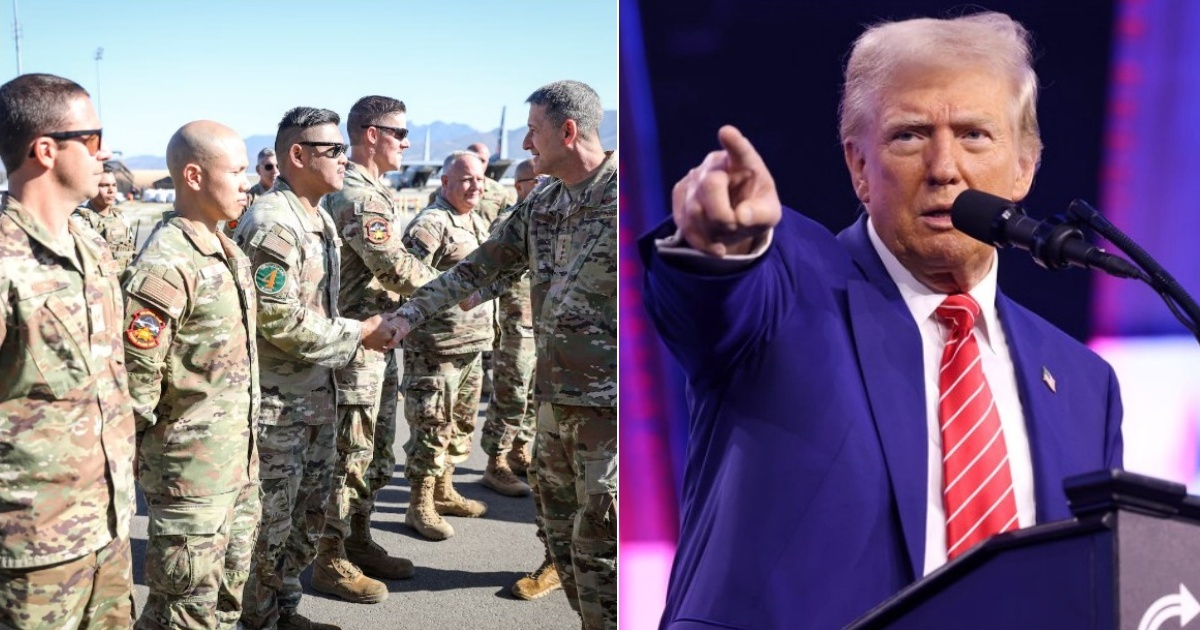
Related videos:
Donald Trump has reiterated his intention to carry out mass deportations of undocumented immigrants, indicating that he plans to use U.S. military troops to do so.
However, the details about how the National Guard will be employed in this plan are still unclear.
A total of 26 Republican governors, including those from Texas, Florida, Georgia, Nevada, Utah, and Virginia, have expressed their support for the plan of mass deportations.
In a joint statement, they affirmed their willingness to "utilize all the tools at our disposal, whether through state police or the National Guard, to support President Trump in this vital mission."
"This demonstrates a certain unity and support from governors regarding deportations. Obviously, governors can deploy the National Guard, and this allows for the expansion of the deportation policy that President (elect) Trump has," said Political Science professor Gerónimo Cortina, in statements gathered by Noticias Telemundo.
On the other hand, some Democratic governors have expressed their willingness to cooperate in the deportation of criminals, but they reject the use of the National Guard for conducting widespread raids, reported The Associated Press.
Possible legal challenges
The use of the National Guard could face legal battles due to the Posse Comitatus Act, which prohibits military troops from participating in the enforcement of civil laws.
However, the Brennan Center for Justice explains that this law rarely applies to the National Guard, as it typically depends on the governor of each state.
Only in exceptional cases, such as under the Insurrection Act, can the president federalize these forces to use them alongside active-duty troops.
On its website, the U.S. Northern Command emphasized that the Department of Defense has a long history of supporting law enforcement agencies in border security activities, including detection, monitoring, and logistics.
According to this entity, up to 4,000 military personnel would be authorized to provide support along the southwestern border.
The humanitarian implications
Among the signatories of the declaration in support of Trump is Texas Governor Greg Abbott, who did not rule out the possibility of families being separated in the process.
Abbott stated, "If a family is detained together, they will be deported together. It will be their decision if they want to be separated. It will be a family decision."
Professor Cortina emphasized that deportations are not exclusive to Republicans.
"We only have the statistics from (Joe) Biden, who has broken almost all records for deportations. It's a trend we've seen since (Barack) Obama. It's not an unprecedented fact; it's not just the Republicans, but also the Democrats, who when they have occupied the White House, have deported millions of people as well," he stated.
In November 2024, Trump used his account on Truth Social to reaffirm his stance on mass deportations. He responded "TRUTH!!!" to a post from a conservative leader who claimed that the incoming government "would declare a national emergency and use military elements" as part of this plan.
The use of the National Guard in Trump's mass deportation plan remains a controversial topic shrouded in uncertainty.
While some Republican governors support the measure, the legal and humanitarian implications remain the subject of intense debate.
Filed under: